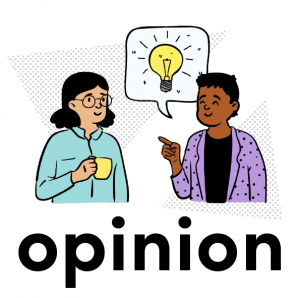CON: Equal distribution of services
January 26, 2021
As hospitals and Intense Care Units are pushed to dangerous capacities across the country, questions about where hospitals can cut their losses and whose care they can deprioritize have arisen. Mounting anger towards the reckless individuals who violate COVID protocols has led many to say that COVID-deniers and anti-maskers should be the last to receive care.
However, as urgent as the situation may be, we cannot deprioritize these individuals, as they may be the key to dismantling the conspiracy theories surrounding the pandemic.
To begin with, determining who was irresponsible during lockdowns is virtually impossible, let alone defining what irresponsibility means. In practice, healthcare workers may end up judging patients based on which appearances fit the stereotypical anti-masker. Acting on one’s assumptions about a patient’s beliefs when treating them not only goes against the Hippocratic Oath, but is illegal in the United States as physicians are obligated to provide care for all who need it.
While the long-awaited COVID-19 vaccines have been administered to millions of frontline workers, thousands of unvaccinated individuals die every day. The death toll in the U.S. is over 400,000 as hospitals and ICUs are filled to their maximum capacity. The frontline is no longer just healthcare workers. The virus is so widespread that the American public is now the most important factor in combatting the pandemic. And, in order to take action on this level, it is necessary to convince skeptics of the all-too-real dangers of the coronavirus.
While it may be easy to believe conspiracies about the virus from the safety of one’s home, it is much tougher to continue to deny the virus’ existence, let alone the dangers of contracting it, when you are on a hospital bed. And a COVID denier or anti-masker who changes their mind can make a difference in changing the minds of communities that share these beliefs.
Tom Mountain, vice chairman of the Massachusetts Republican Party, is one such COVID-denier-turned-ICU patient. It was only a few days before he contracted the virus that he was scoffing at masks and shaking hands with his colleagues. Reality only hit him when he was brought into the emergency room for COVID-19 treatment.
Another ex-denier from Florida, Chuck Stacey, recently shared a video online from his hospital bed. He warned others who shared his former mindset about the consequences of contracting the virus.
As COVID-19 continues to ravage our country, we cannot let hate blind us to the potential benefits of COVID deniers’ testimonials. Because of the sympathy and care that they received, these former COVID-19 deniers have slowed the spread of misinformation. With a combination of social and scientific efforts, we can build a front line strong enough to withstand the pandemic.









